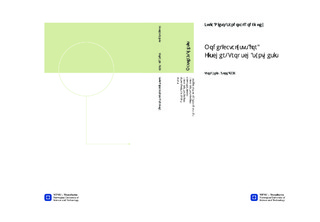| dc.description.abstract | Today, Fischer-Tropsch synthesis is the key process in the production of liquid fuels from synthesis gas (a mixture of CO + H2). This mixture can be obtained from fossil fuels (oil, natural gas or coal) and from renewable sources such as biomass. Catalysis has an important role in the reaction since the catalysts can vary the activity and selectivity towards a wide range of products (i.e. methane, olefins, paraffins and alcohols, among others).
The scope of this Master s thesis has been the synthesis of core/shell nanoparticles as catalysts to increase the conversion of CO; increase the selectivity to olefins and C+5; and decrease the methane formation. It is known that using metal oxides as promoters in the catalyst formation favor these desires products.
For this objective, it has been selected manganese oxide as promoter. It has been synthesized 10 catalysts with different core/shells. Some catalysts were a formation using Co as core and MnO as shell, coating the surface area of the Co with different percentages (0, 25, 50, 75, 100, and 200%) to understand which conditions are optimal.
On the other hand, it has been synthesized few core/shells catalysts of MnO as core and Co as shell.
Finally, it was evaluated some experiments of lanthanum oxide nanoparticles. It was comparable different precursors to synthesize this oxide: La oleate; La linoleate; La laureate; and La stearate.
The characterization of the catalysts has been done using these techniques: TEM, XRD, and TGA. The catalyst performance has been evaluated in a Fischer-Tropsch reactor.
After evaluate the results, it can be concluded that a catalyst formed by a core/shell of Co as core and coated with multi layer of MnO is the optimal catalyst. This catalyst has a low methane formation and high selectivity to olefins and C+5 compared with the rest of the catalysts, even pure Co.
Regarding the experiments of lanthanum oxide, lanthanum laureate is the precursor with the lowest decomposition temperature, favoring the reaction to form lanthanum oxide. | |

